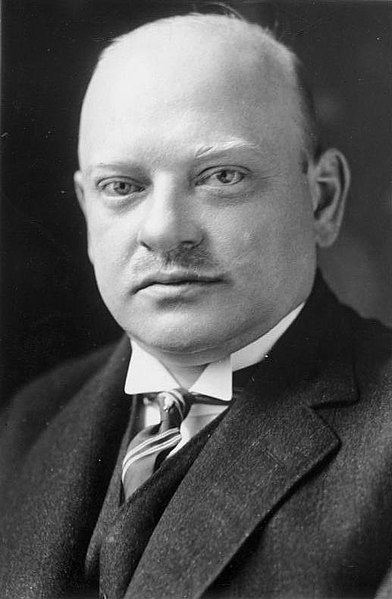Gustav Ernst Stresemann was a German statesman who served as chancellor of Germany from August to November 1923, and as foreign minister from 1923 to 1929. His most notable achievement was the reconciliation between Germany and France, for which he and French Prime Minister Aristide Briand received the Nobel Peace Prize in 1926. During a period of political instability and fragile, short-lived governments, Stresemann was the most influential politician in most of the Weimar Republic's existence.
Portrait of Stresemann (with visible Schmiss)
Streseman (middle) with the German delegation at the 1925 Locarno Treaties, Autochrome by Roger Dumas
1929 Autochrome of Streseman in The Hague by Stéphane Passet
Stresemann in September 1929 shortly before his death with his wife Käth and son Wolfgang
Minister for Foreign Affairs (Germany)
The Federal Minister for Foreign Affairs is the head of the Federal Foreign Office and a member of the Cabinet of Germany. The current office holder is Annalena Baerbock. Since 1966, the Minister for Foreign Affairs has often also simultaneously held the office of Vice-Chancellor of Germany.
Minister for Foreign Affairs (Germany)
Gustav Stresemann, one of Germany's most influential Foreign Ministers and a 1926 Nobel Peace Prize laureate
Image: Hermann von Thiele a 001
Image: Hermann Ludwig von Balan







